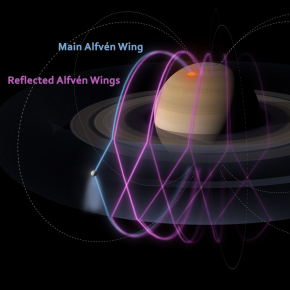Soutenance de thèse
Cécile Davrinche
LSCE
Variability of near-surface winds in Antarctica : present-day climatology and projections
Résumé
Antarctic surface winds are the most intense and persistent winds on Earth. These winds have a major impact on the Antarctic surface climate : they destroy the surface inversion, causing apparent warming ; they are very dry and contribute to the evaporation of precipitation before they reach the ground ; and they create blowing snow, affecting the surface mass balance. Global climate models have neither the resolution nor the processes required to model these winds properly, resulting in major biases in the simulation of Antarctic surface climate and a lack of understanding of the mechanisms governing their variations.
The winds in this region are driven by large-scale pressure gradients (storms, blockings, jets) as well as by additional pressure gradients induced by the radiative forcing of the ice-covered surface (katabatic pressure gradient and thermal wind). This thesis aims to better understand and quantify the impact of these two families of forcings on the Antarctic wind field. To this end, I have developed an original method for calculating the various accelerations contributing to the momentum balance, at a temporal resolution of 3 hours, from the output of the MAR regional polar atmospheric model. Using the quasi-geostrophicity of Antarctic winds at a 3-hourly scale, I can directly quantify the contribution of each acceleration to the total wind.
First, I quantify the temporal variability of surface winds over the recent period (2010-2020), and link it to the variability of large-scale and surface forcings. In particular, I show that the angle between these two forcings is a key parameter for understanding the intensity and variability of winds in Antarctica.
Then, I study the impact of climate change in 2100 by linking Antarctic wind changes to changes in surface and large-scale forcings in the MAR model for the SSP5-8.5 scenario, defined by the IPCC as a scenario of high greenhouse gas emissions. To do this, I use simulations of MAR forced by 4 global climate models from the CMIP6 database, to which I apply the decomposition method at a resolution of 3 hours. I quantify the influence of the different forcings on changes in wind speed. I highlight areas of significant near-surface wind changes by 2100, including wind intensification in Adélie Land and on the Ross Ice Shelf, and weakening in the Pine Island Glacier and Ronne Ice Shelf regions. Areas of wind intensification are predominantly linked to large-scale pressure gradient changes, while the weakening is linked to changes in surface pressure gradients (katabatic and thermal wind) in the absence of large-scale changes.
This work provides new insights into Antarctic winds, which are a key parameter to evaluate the surface mass balance. It highlights the importance of surface processes in explaining the variability and trends of Antarctic surface winds, and gives new constraints to improve of the parameterisation of the polar boundary layer in global climate models
Informations supplémentaires
Lieu
Auditorium, Lumen
4 avenue des Sciences
91190 Gif-sur-Yvette
Composition du jury
Sébastien FROMANG, (Examinateur), Directeur de recherche, Laboratoire des Sciences du Climat et de l’Environnement
Thomas BRACEGIRDLE (Rapporteur), Directeur de recherche, British Antarctic Survey
Chantal STAQUET (Rapportrice), Directrice de recherche, Laboratoire des Ecoulements Géophysiques et Industriels
Fleur COUVREUX (Examinatrice), Directrice de recherche, Centre National de Recherches Météorologiques
Etienne VIGNON (Examinateur), Chargé de recherche, Laboratoire de Météorologie Dynamique
Valérie Masson-Delmotte (directrice de thèse), Directrice de recherche, Laboratoire des Sciences du Climat et de l’Environnement
Cécile Agosta (co-directrice de thèse), Chargée de recherche, Laboratoire des Sciences du Climat et de l’Environnement
Anaïs Orsi (co-directrice de thèse), Chargée de recherche, University of British Columbia






